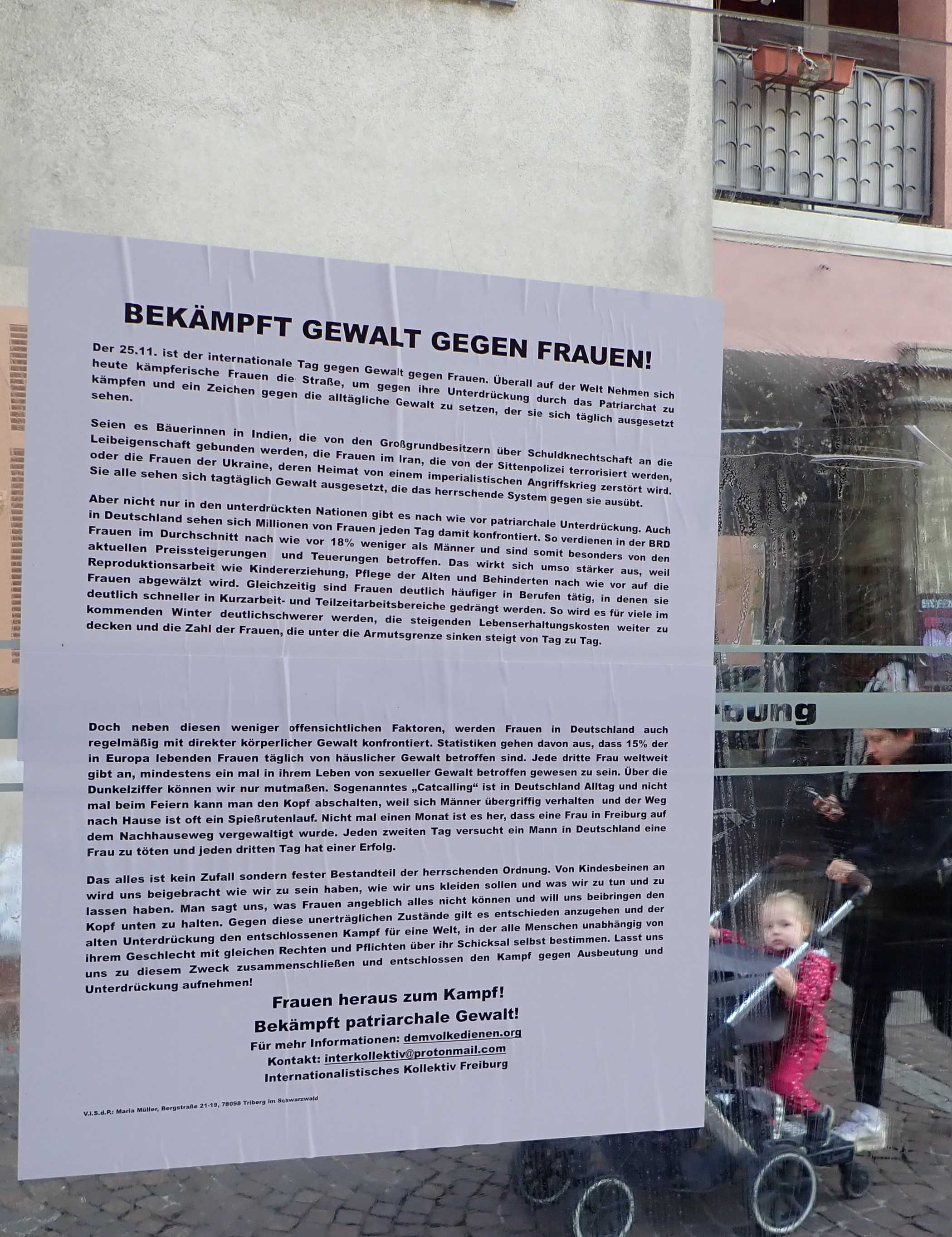Dokumente
Dokumente
- Details
- Kategorie: BRD
Seit mehreren Wochen streiteten die Ampelparteien und die Union über das geplante Bürgergeld. Nun wurde entschieden, dass es das Arbeitslosengeld II, auch bekannt als Harz IV, ab dem 1. Januar 2023 ablösen soll.
- Details
- Kategorie: BRD
In Freiburg wurde aus Anlass des internationalen Tags gegen Gewalt an Frauen eine Wandzeitung geschrieben und an verschiedenen Stellen in einem belebten Viertel aufgehangen. Wir veröffentlichen hier einige Bilder, welche uns zugesendet wurden.
- Details
- Kategorie: BRD
Am 25. November 2022, dem Internationalen Tag gegen Gewalt an Frauen, fanden verschiedene Aktivitäten in Städten Nordrhein-Westfalens statt. Von diesen Aktivitäten wurde uns ein Bericht einschließlich Bilder zugeschickt, den wir hiermit mit euch teilen möchten.
- Details
- Kategorie: BRD
Der 25. November – der internationale Tag gegen Gewalt an Frauen – wurde in Hamburg mit einer abendlichen Demonstration begangen, die durch Hamburg St. Pauli zog. Viele, vor allem junge Frauen und Männer beteiligten sich an der Demonstration, die durch das Viertel zog, das wie kaum ein anderes in der BRD für Gewalt gegen Frauen steht und trugen den Protest lautstark auf die Straße.
- Details
- Kategorie: International
Die revolutionäre Zeitung Yeni Demokrasi aus der Türkei, sowie die Website Avrupa Haber schrieben in den letzten Tagen von Protesten in der Türkei und Europa gegen die Angriffe des reaktionären türkischen Staates auf Rojava.
- Details
- Kategorie: BRD
Am 19. November rief ein breites Bündnis in Dortmund zu einer bundesweiten Großdemonstration gegen rassistische Polizeigewalt auf, die von etwa 2.500 Teilnehmern besucht wurde. Konkreter Anlass war der grausame Mord der Polizei an dem 16-jährigen Mouhamed L. Dramé in der Dortmunder Nordstadt.
- Details
- Kategorie: Proletarischer Feminismus
Wir veröffentlichen die Botschaft der Roten Frauenkomitees zum 25. November 2022.
- Details
- Kategorie: Dokumente
Wir teilen hier eine auf Avrupa Haber veröffentlichte Erklärung.








